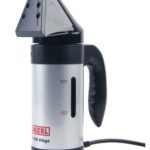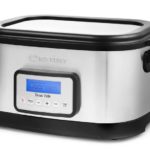How to choose a concrete mixer for your home: some tips from experienced people
There are several proven ways to choose a concrete mixer that is suitable for use at home. The device must be powerful enough, have a volume in the range of 100-150 liters, and be powered by an electric motor. The main selection criteria are described in detail in the article.
The content of the article
Volume and weight
When it comes to which concrete mixer is best to buy for your home, you should not choose models that are too heavy. For domestic purposes, it is enough that the volume of the device is within 100 liters and the weight is 20-40 kg.
Such parameters are suitable for the construction of a small structure, for example, a bathhouse, a garage, a gazebo, pouring a base for a path, or repair work. If you want to build a one-story private house, you will need a volume of 100-150 liters and a device weight of 40-50 kg.

If you plan to build 2-3-story houses, it is better to take a device with a volume of 150-300 liters. The weight will be about 50-160 kg. These are universal mixers that are quite suitable for all small and large-scale work.
Power
Another way to choose a concrete mixer for your home is related to power rating. If you plan to work for a long time and without interruption, the parameter should be at least 1000 W.
If heavy loads are not planned, continuous operation lasts no more than 6-7 hours; an average power of 700-800 W is sufficient.Using such devices, you can prepare mixtures for gazebos, small bathhouses and other household structures, as well as for all kinds of repair work.
Principle of operation
Before purchasing, you need to understand what types of concrete mixers there are. There are several classification criteria, one of them is related to the mixing method. According to this indicator, 2 groups are distinguished:
- Forced action mixers - in this case, the solution is mixed with blades located inside the drum. Moreover, the container itself remains in place and does not move. This type is used for professional purposes.
- For home work, a gravity-action device is suitable. This is a classic option when the container rotates and the mixture is mixed and settles down under the influence of gravity.
Transmission type
Another tip on how to choose a concrete mixer for your home and garden is related to the type of transmission. There are 2 options:
- Geared – the gearbox comes separately, enclosed in an additional housing. This allows you to avoid the ingress of sand, debris, and dust particles. The mechanism will last longer, but the device must be handled with caution. If an engine or gearbox is damaged, repairing it is sometimes more expensive than the purchase itself.
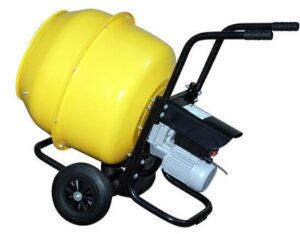
- Crowned – in this case, the engine imparts an impulse to the drum through gears and a ring on the rim. The mechanism is quite simple, but debris often gets into it. At the same time, the repair is simple and will take no more than 3 hours. Such devices are noticeably cheaper, so they are more common.
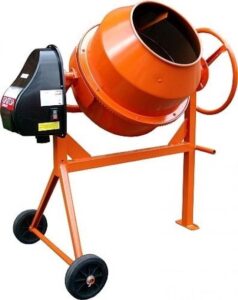
Crown material
The choice of a concrete mixer for your home is also related to reliability - the longer the equipment lasts, the better. This indicator depends on the material of the crown:
- Plastic – affordable, suppress noise. But they quickly wear out and become unusable.
- Steel - more expensive, although the most reliable. They are especially often used not at home, but in the professional sphere.
- Cast iron – not as expensive as steel, but more durable than plastic. This material is the most common.
Drive unit
One of the effective ways to choose a concrete mixer for building a house is to study the type of drive. There are 4 types of device:
- Muscular – the mixer is operated manually using a rotating handle. The performance is very low, but the price is also the most affordable. Suitable for minor repair work only.
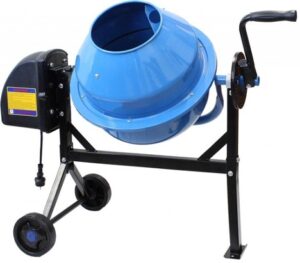
- Pneumatic or hydraulic drive – the device operates by forced supply of air or water, respectively. The installation is complex and maintenance is not always easy. It is usually used for work on an industrial scale.
- Motor drive – runs on a gasoline or diesel engine. It makes a lot of noise, consumes a lot of fuel, and gives a strong output. Absolutely not suitable for indoor use.
- Electric drive - occurs most often. The equipment is economical, convenient, and not too noisy. Operates from a regular 220 Volt network (in the case of industrial installations 380 Volt).
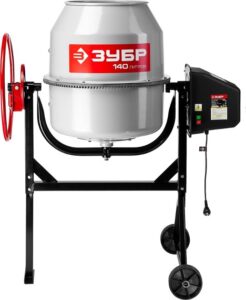
If you decide which concrete mixer to choose for your home, you need to focus on power, volume, duration of continuous operation and type of drive. Most often, electric devices with a power of 1000 W are used. This is quite enough for repair work and the construction of small buildings.

